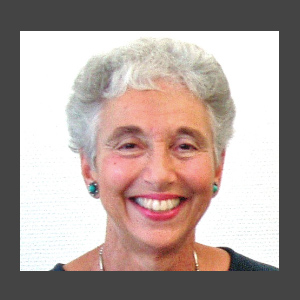The Disability and Change Symposium is available as a free online learning module.
Combating Implicit Bias: Employment

Go to the learning module
About this year's theme
Employment statistics for persons with disabilities continue to be disappointing, ~19% compared to ~66% of peers without disabilities. (US Bureau of Labor Statistics, 2018). We ask ourselves, "is there something beyond overt discrimination and access that perhaps we need to address? Are there silent barriers such as those created by implicit bias?"
Most of us believe that we are fair and equitable, and evaluate others based on objective facts. However, all of us, even the most egalitarian, have implicit biases – triggered automatically, in about a tenth of a second, without our conscious awareness or intention, and cause us to have attitudes about and preferences for people based on characteristics such as age, gender, race, ethnicity, sexual orientation, disability, and religion. These implicit biases often do not reflect or align with our conscious, declared beliefs.
(American Bar Association, Commission on Disability Rights, "Implicit Bias Guide," 2019)
This year's theme challenges us to each ask ourselves "What implicit bias(es) do we have and encounter, and how do we recognize them and move beyond them to create opportunities, welcome, and full participation for all?"
As always, this Symposium privileges first-person voices and experiences.
About the Disability and Change Symposium
The stated goal of the annual Symposium is "to create conversation that transcends any one-dimensional depiction of people with disabilities, and foregrounds the multidimensional lives of our speakers - as writers, educators, performers, and advocates."
The Disability and Change Symposium is a one-day, interdisciplinary conference focusing on cultural equity and disability. The event is free, accessible and open to the public.
Acknowledgments
Organized by the Institute on Disabilities at Temple University, the Symposium is an outcome of collaboration with the Interdisciplinary Faculty Council on Disability whose mission is "to foster collaboration across Temple University on disability-related projects including research, teaching, programming, publication, and grant-seeking. By connecting with one another, Council members help build community among the growing number of people at Temple whose work engages with disability."
Core funding for the Disability and Change Symposium is through a grant from the Center for the Humanities at Temple University (CHAT)
We extend our appreciation to Disability Resources and Services for providing Communication Access Realtime Translation (CART) and American Sign Language services for the day.
The Institute on Disabilities, Temple University College of Education is pleased to recognize some of our 2020 Symposium Partners/Sponsors from Temple University:
This year we also want to recognize the contributions of students (Associate Professor Deb Blair, STHM 2114 - Leisure & Tourism in a Diverse Society), who contributed to shaping and supporting this symposium:
- Madeline Culbert, School of Sport, Tourism, and Hospitality Management; Bachelor of Science: Tourism and Hospitality Management (est. 08/2021)
- Jair Guardia, School of Sport, Tourism, and Hospitality Management, Bachelor of Science: Tourism and Hospitality Management. (est. 08/2021)
- Hallie Ingrim, School of Sport, Tourism, and Hospitality Management Bachelor of Science: Tourism and Hospitality Management
- Thomas Leonard, School of Sport, Tourism, and Hospitality Management Bachelor of Science: Tourism and Hospitality Management (est. 08/2021)
- Bryan McCurdy, School of Sport, Tourism and Hospitality Management, Bachelor of Science: Tourism and Hospitality Management (est. 05/2022)
Go to the learning module
Top of Page ↑


